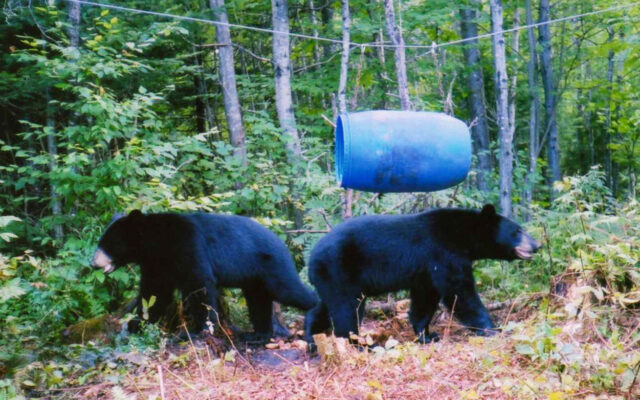
Out-of-staters are more successful bear hunters in Maine
By Pete Warner, Bangor Daily News Staff
It’s no secret among hunters that Maine is a great place to hunt black bears.
The state is home to a healthy population estimated to be more than 36,000 — more than the population of Bangor (32,095) — and the number of bears has been slowly rising for the last decade.
Each year, about 10,000 hunters target bears in Maine. In 2020, likely spurred by the COVID-19 pandemic, that number grew to some 12,000.
That’s a good thing, according to Jennifer Vashon, the black bear and Canada lynx biologist for the Maine Department of Inland Fisheries and Wildlife.
“As an agency, we want to slow the growth so that we kind of keep the bear population at levels that the habitat can support but that also reduces conflicts between bears and people.”
Among bear hunters, only about half are Maine residents. Bear hunters account for fewer than 8 percent of all hunting licenses sold in Maine, which last year totaled 158,197.
On average, 25 to 33 percent of bear hunters harvest an animal, but the rate is higher for nonresidents. In a good year, 45 percent of nonresidents are successful.
Vashon said there are some good reasons why nonresident hunters tend to harvest more bears.
“Most nonresident hunters hire a sporting camp and a guide for a week, so they’re devoting one full week of sitting in a treestand every day over bait,” Vashon said. “The resident goes a day here, a day there and the bears don’t come in every night.”
While there’s a chance the part-time hunter and the bear will converge on the bait site at the same time, devoting daily or more consistent efforts to the hunt — whether using a guide or hunting independently — is the way to go.
Baiting is far and away the most effective means of bear hunting in Maine. Vashon said 75 percent of harvested bears are taken over bait.
However, it requires considerable effort to get permission to hunt, to scout the property, then to establish and maintain a bait site.
“It’s hard work for residents to bear hunt,” Vashon said, “and hunting over bait takes a lot of time and effort that people don’t realize.”
Good bear habitat also might not be conveniently located to hunters who live in or around some larger cities and towns.
And by the time the September bear hunting season arrives, school is in session and children are participating in sports and other extracurricular activities, further limiting hunting time.
Hunting with dogs accounts for 16 percent of the harvest, followed by trapping (4 percent), those who shoot a bear during firearms season for deer (3 percent) and the 1 to 2 percent who take a bear while still-hunting.
Vashon also recently pointed out that this year’s favorable growing season, and the resulting abundance of wild berries, nuts and natural foods, are likely to make it even more difficult for hunters to harvest a bear.
Vashon stressed that the DIF&W, in its efforts to help maintain a healthy and manageable black bear population in Maine, is providing lots of information on its website to help folks in their hunting pursuits.
“We’re trying to promote bear hunting and get more of our resident hunters interested in hunting black bear,” she said.